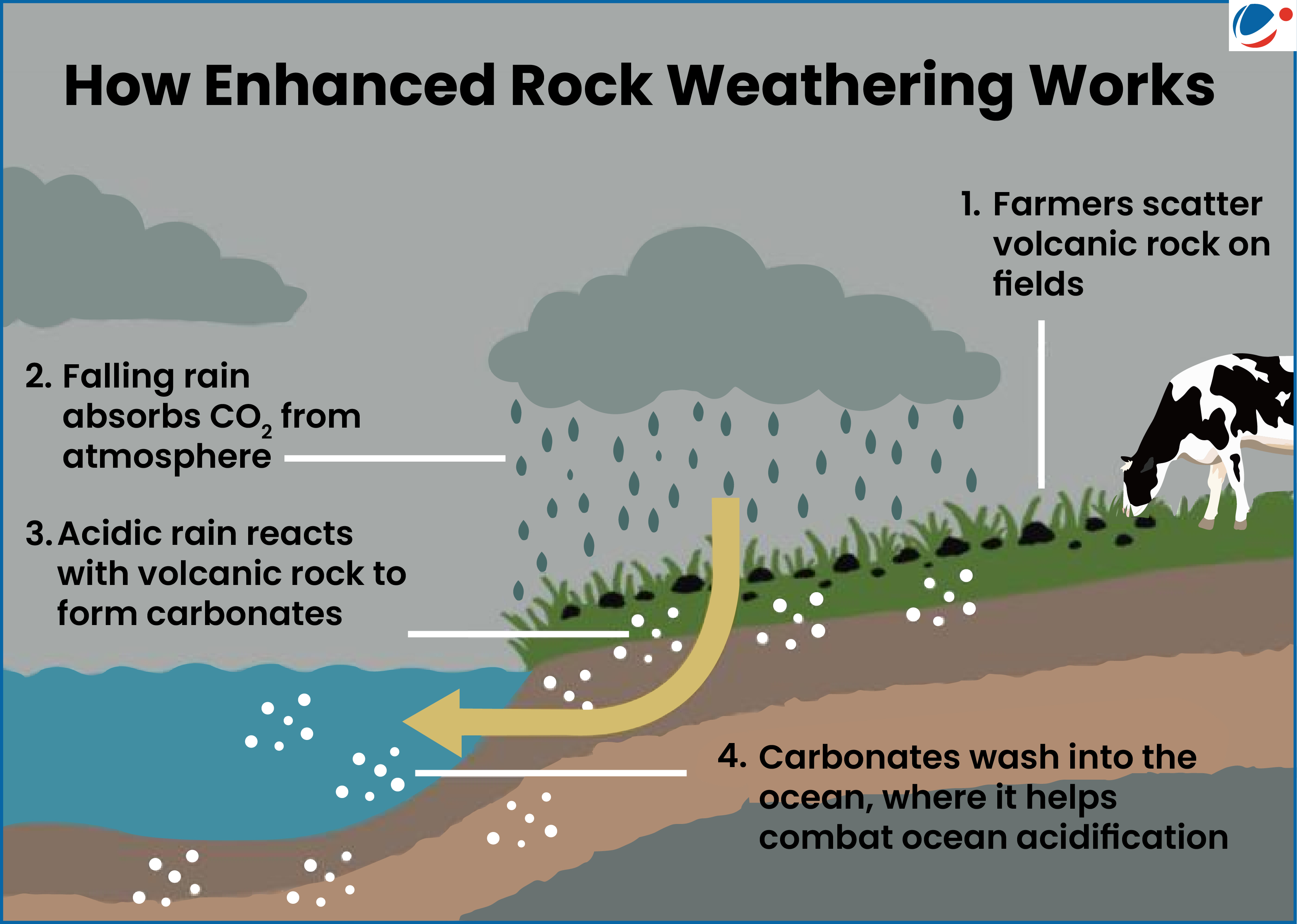Mati Carbon uses an Enhanced Rock Weathering model, which captures carbon dioxide (CO2) while boosting crop yields for smallholder farmers. This offers a rare synergy of environmental & social impact.
- XPRIZE, launched in 2021, challenges innovators to deploy scalable solutions for removing CO2.

About Enhanced Rock Weathering Model
- Definition: Enhanced Rock Weathering involves grinding basalt (or other volcanic rocks like Olivine) into a fine powder and then spreading it on various landscapes. E.g., farmlands, forests, and coastlines.
- The Basaltic powder then reacts over time, removing CO2 from the atmosphere and locking it away in an inorganic form that will wash into lakes, rivers, and oceans.
- Basalt's good CO2 absorption capabilities stem from its high content of calcium, magnesium, and iron.
Additional Benefits of Enhanced Rock Weathering Model
- Agricultural Benefits
- Increased crop yields due to improved soil health. E.g., Farmers report 70% higher yields.
- Reduced fertiliser costs as basalt releases essential minerals. E.g., reduces pesticide use by 65%.
- Environmental & Ecosystem Benefits
- Counters ocean acidification by increasing seawater alkalinity via bicarbonate runoff.
- Enhances long-term carbon storage (10,000+ years) compared to organic carbon methods.
- Scalability & Practical Advantages
- Globally abundant feedstocks (e.g., basalt rock) with existing mining infrastructure.
- Low-tech implementation—uses commercially available equipment.





